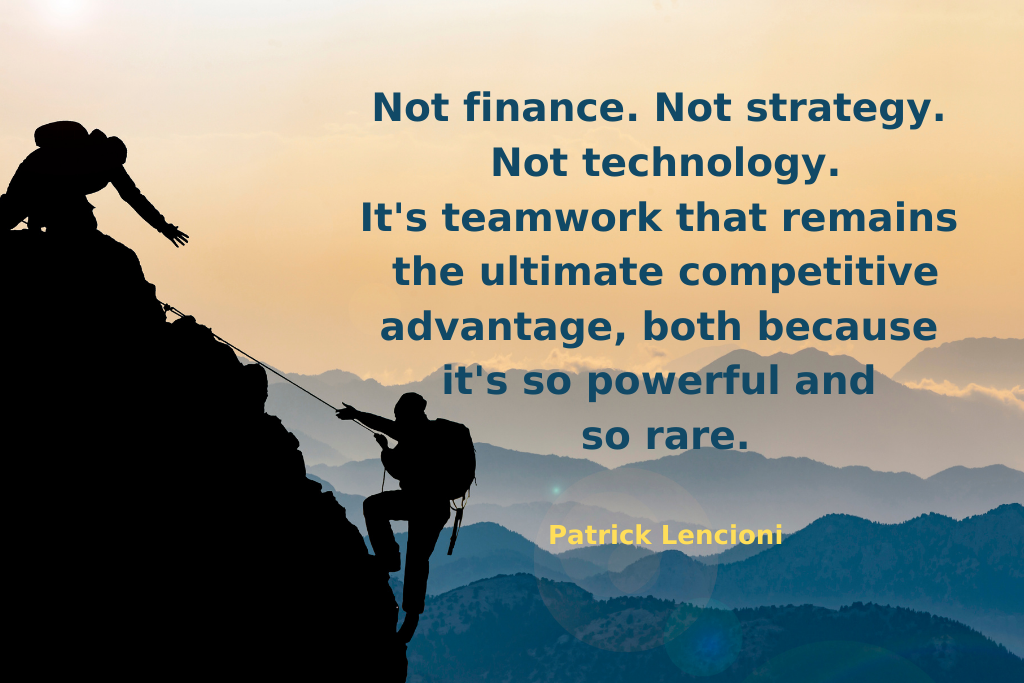I often work with companies facing major change and/or with aggressive growth agendas. Within the leadership teams in these organisations, there is an awareness that thy need some facilitation and help with how they move forward. There needs to be a huge shift in how they think, how they show up, how they present and work through challenges and how they deal with the increased degree of complexity that is going to arise. They know that they need to create the right team that possesses the structure, skill base and capabilities in order to facilitate this massive growth.
As a company evolves, some roles become greyer, some become obsolete, some need to be fragmented and some roles arise that weren’t there before. Understandably, their focus is on the company structure; the changed roles and responsibilities that need to occur to support this kind of growth. Their solution is to address and define the changing roles and responsibilities. And they are right to focus on this.
But not straight away.
The concern with this approach is they are addressing the symptoms and not the cause. Diving in and focusing on ‘who’s in charge of what’ before developing the leadership team’s ability to debate these issues is premature and they are missing an opportunity to deal with the real problem. From experience, I would propose that first, they ought to spend some time developing the leadership team’s ability to actually have these conversations. To build a foundation of trust in the leadership team that supports the healthy discussion of change. By dedicating time and effort to building this communication foundation at a leadership level, you are in a better position to move forward into most productively defining new roles and responsibilities.
Without trust, there is no teamwork. Without teamwork there is dysfunction
As outlined by Patrick Lencioni, there are five basic ‘dysfunctions’ that leadership teams, or teams at any level, struggle with. Building trust is one of the most fundamental things you must do to become a high performing team, a team that can effectively tackle and embrace the change that comes with growth.
Lencioni’s 5 dysfunctions of teams are:
- Lack of trust
Only when we fully trust one another can we have the conflict we need to have. The fear of being vulnerable prevents team members from building trust with each other. Having a lack of trust results in wasted time and energy. Team members invest in defensive behavior and are reluctant to share ideas and ask for help or offer help each other. Without a foundation of trust, the bigger conversations just can’t happen productively. - Fear of conflict
When trust is established within a team, the members of the team can progress to have conversations about conflict. Conflict is a necessary and healthy part of change. A company about to go through massive change certainly needs to embrace conflict. This is only done, if there is trust. Teams that are lacking trust are incapable of having an unfiltered conversation about things that matter, causing team members to avoid conflict. Rather than members feeling safe and supported in discussing and working through conflicting ideas, these conversations are avoided or cause even more conflict. The desire to preserve artificial harmony stifles productive ideological conflict within the team. If we don’t have the conflict we need to have, to have the conversations we need to have, some things will be left unsaid and we don’t have the commitment we need to have. - Lack of commitment
The lack of clarity and/or buy-in prevents team members from making decisions they stick to. Without working through conflict, it is not easy for team members to commit and buy in to decisions. This in turn results in an environment where ambiguity prevails. This of course in counterproductive for managing change effectively. - Avoidance of accountability
Ad without commitment to a course of action, there is no accountability. People are not going to hold themselves accountable to something they are not committed to. - Inattention to results
The pursuit of individual goals and personal status erodes the team’s focus on collective success. A team can only become results-oriented when all team members place the team’s results first. When individuals aren’t held accountable, team members naturally tend to look out for their own interests, rather than the interests of the team.
The problem with many companies is that they start the conversation at the top tier –at the results level – without first working through each level that they need to go through in order to most effectively talk through results. If your company is facing inevitable change, make sure you work on the trust within the leadership team as your first priority.
Could you and your leadership team do with one of my tailored workshops? I’d love to share my experience and fool-proof leadership techniques with you. Don’t hesitate. Get in touch today.
